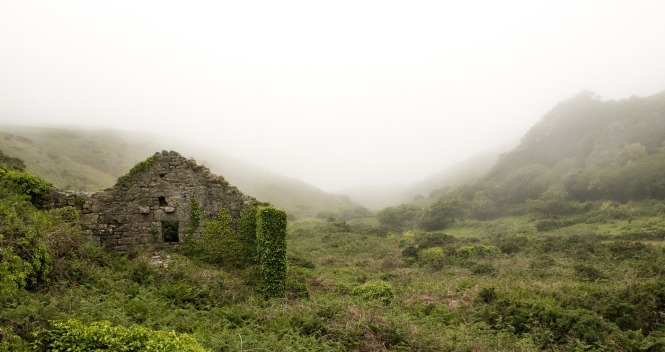A brief look at a mother and daughter fleeing the ravages of the War of the Tandonni. This is my contribution to this week’s Friday Fictioneers challenge. To see the photo prompt, click here — and don’t forget to click on the blue frog to see everyone else’s (always excellent!) stories.
“Look, Mother!”
Narellae paused in her scavenging of other refugees’ discards along the roadside. Her daughter pointed to a painting, broken, half-buried.
A primitive warrior woman stood on a seashore, a bear towering behind her, facing a gigantic fish spitting water from a second mouth on top.
Narellae didn’t recognize the story, but clearly it was sacred. She pushed together the split panel, blew off the dirt, and propped it against a broken wall.
At her daughter’s quizzical look, Narellae bowed to it, saluting whatever gods these were.
Respect was free, and all they had left to give now.
For the story behind the painting, check out How Par Captured the Sun.

Delightfully true last line ~
LikeLiked by 1 person
Thank you!
LikeLike
Respect was free… what a great line. That is so easy to give, and it makes all the difference.
LikeLike
Thanks! And yes, agreed. I usually think about respect in terms of interpersonal interactions, but this idea really struck me — that this woman has lost everything in the war, and doesn’t even know what religion this painting is from or what it means, but it is still her way, her tradition, to be respectful. That, she has not lost.
Hopefully there’s also the hint of this particular society being very open and polytheistic. (If not: hint!)
LikeLike
Treating others, or others’ beliefs, with respect also maintains one’s own dignity. That woman may have lost a lot, but not now, and probably never, her dignity. Great story, so much colour in such few words.
LikeLike
Thanks! I always have the whole rest of the world of Eneana in mind when I write these pieces (e.g., what war she’s a refugee from), and usually start off with more like 300 words’ worth of idea. So it’s nice to know that even with such an abbreviated glimpse, a reader still gets some of the flavor of it. And yes, she’s a good representative of her very dignified, respectful, civilized culture. (Which is about to enter an age of chaos, as the empire falls…)
LikeLiked by 1 person
Lovely story and I loved the last line!
LikeLiked by 1 person
Thank you!
LikeLiked by 1 person
A woman filled with grace…
LikeLiked by 1 person
Lovely tale.
Respect is indeed all some have. Bravo.
LikeLike
Thank you!
LikeLike
Lovely take on the prompt
LikeLike
Thanks for saying so!
LikeLike
“Respect was free, and all they had left to give now.” Such a powerful line!
LikeLike
Nice of you to say, thanks!
LikeLiked by 1 person
They must be remarkable people, to be able to still feel and show respect when it seems they have suffered and lost everything else. Usually respect is an early victim. I love this glimpse into their world.
LikeLike
Glad you liked it, thanks for commenting! Some of these people are more remarkable than others, I would say, much like with any culture. But yes, her Pyanni culture is polytheistic and more welcoming of other religions and gods than other societies in this world. I was also thinking when I wrote it that for she might believe the god(s) in the painting could help her, or hurt her if she is rude to them. (Although if you read the accompanying story about Par, you’ll see that none of the characters in the painting is actually a god.)
LikeLiked by 1 person
Wow! It took me a second to figure out that the description of the picture was about a picture, and not another actor in the scene (I am slow that way). But when I started the story and as I read it and especially at the end, it put me in mind of the many desperate immigrants coming to Europe right now, and what they are facing, and if only we all had more respect and dignity in these times here in Europe. To respect a religion is to respect the people who draw strength from it — it need not be a source of fear, but can be a source of reverence, even if we don’t share or even know about the beliefs. Namaste. Great short story!
LikeLike
Thanks, Heather! The switch to the description of the painting is a little confusing, I agree. The original draft had a lot more detail and clarification, but cutting it down to the word count… something always gets lost. And yes, I was thinking about how universal (unfortunately) the experience of refugees are — that even in this world where they’re fighting a war against non-human magruks using arcane magic and divine powers, the war still has the same kinds of effects on individuals’ lives and families and homes.
LikeLiked by 1 person